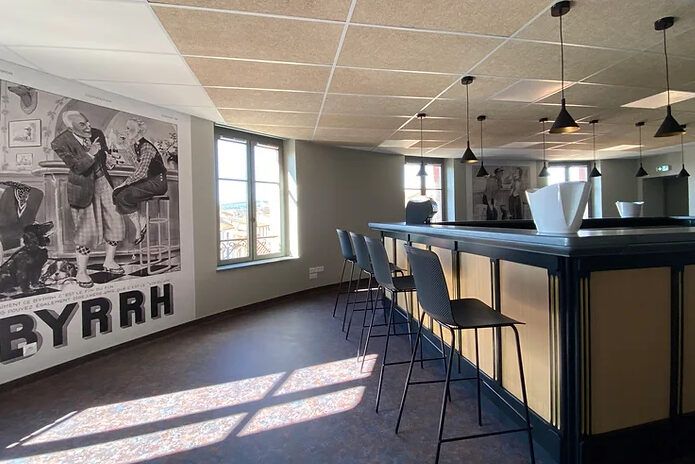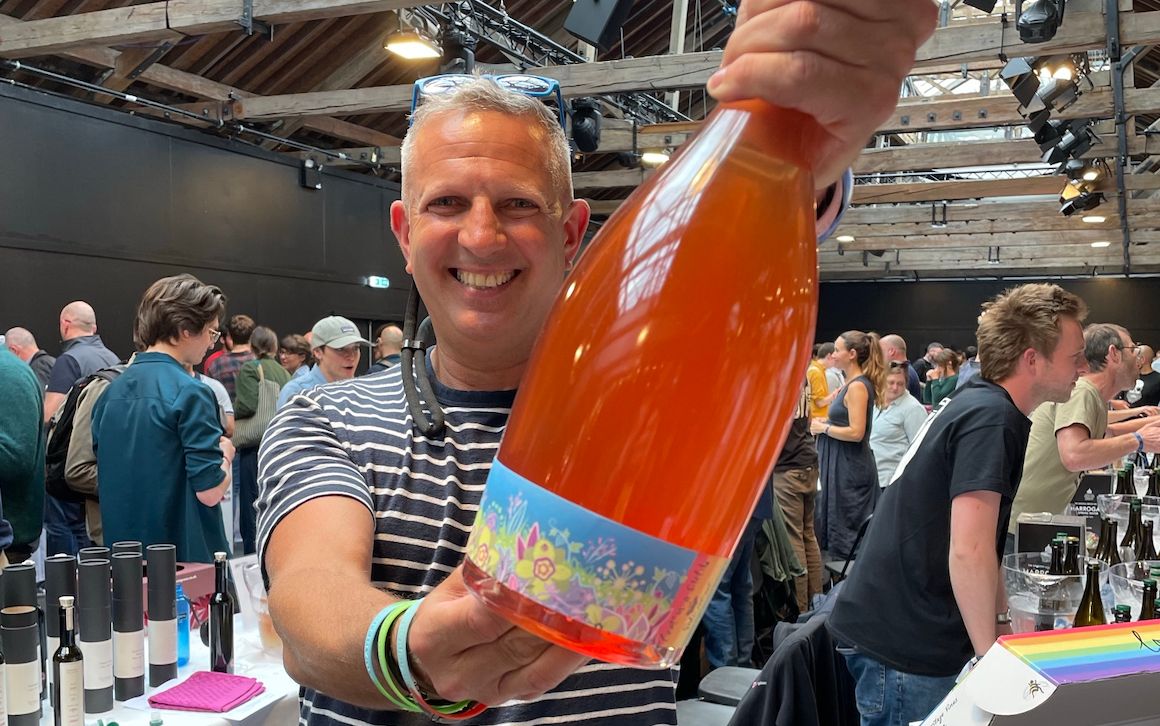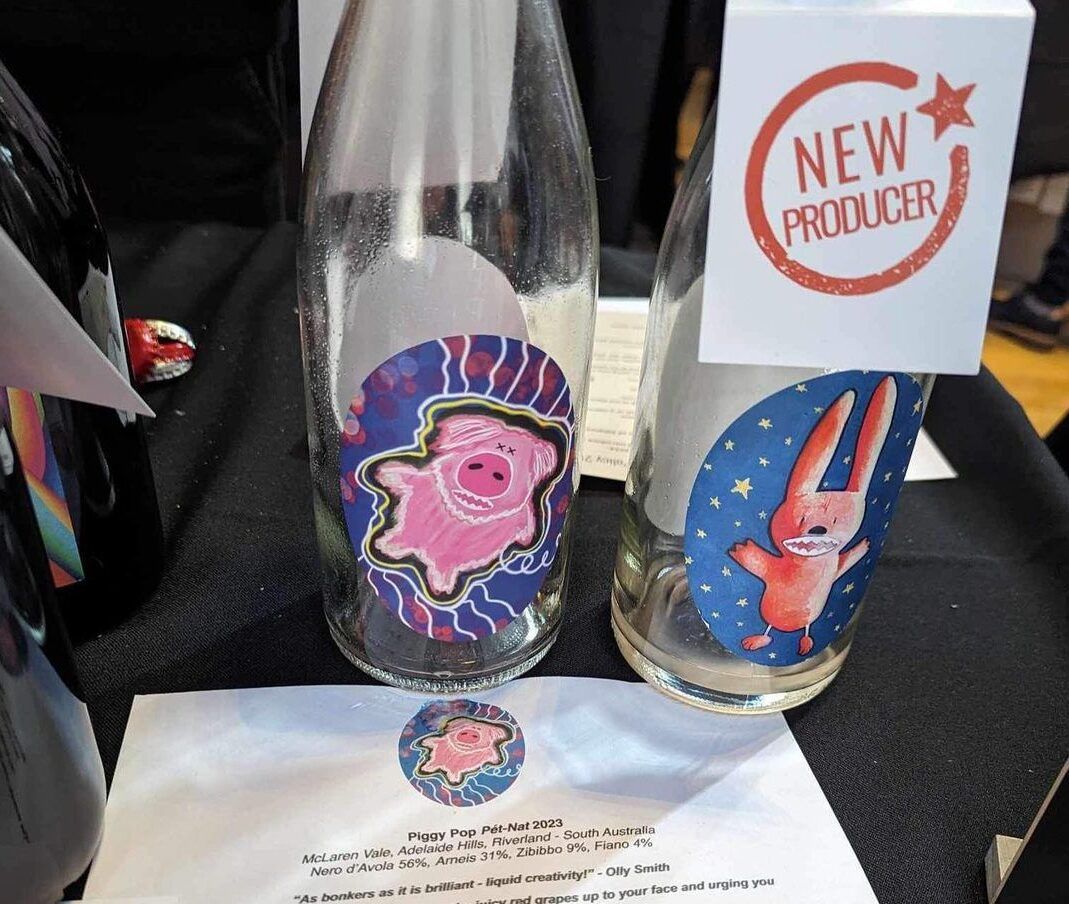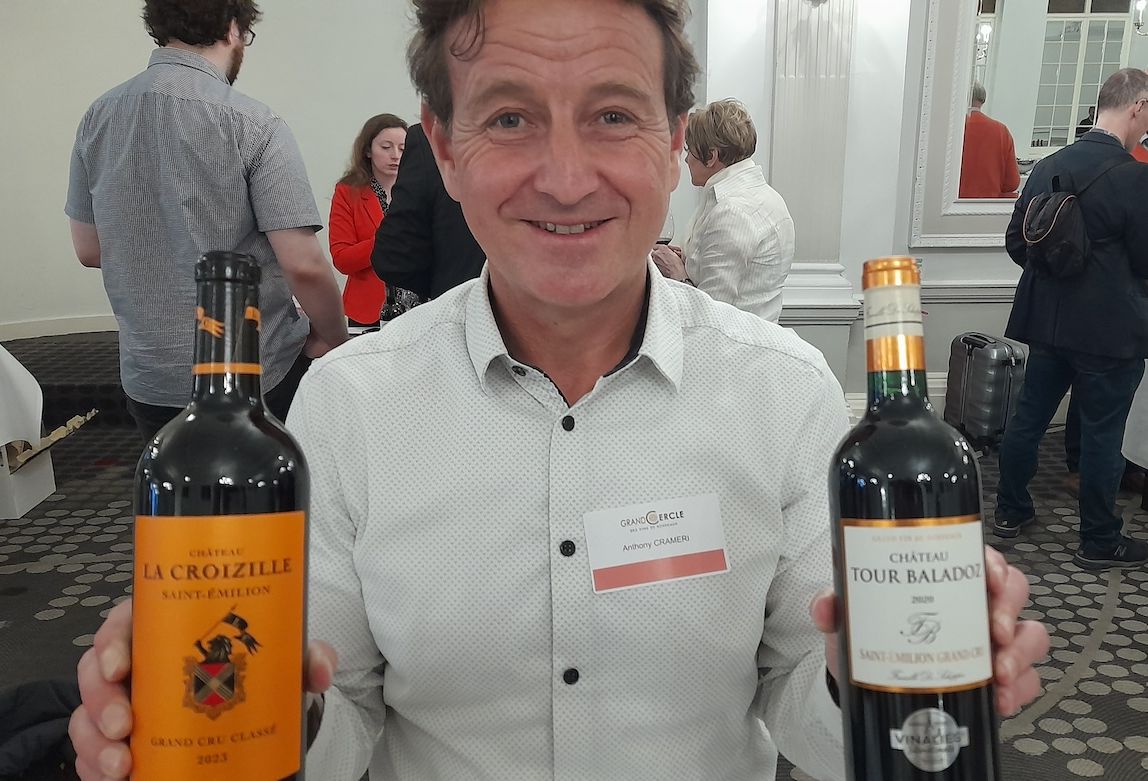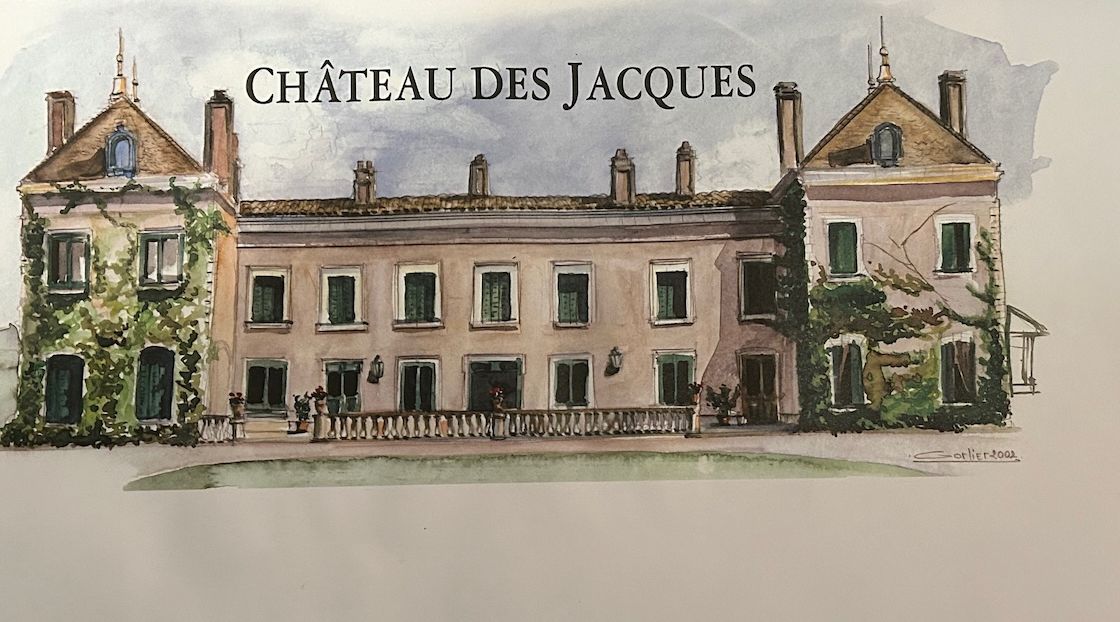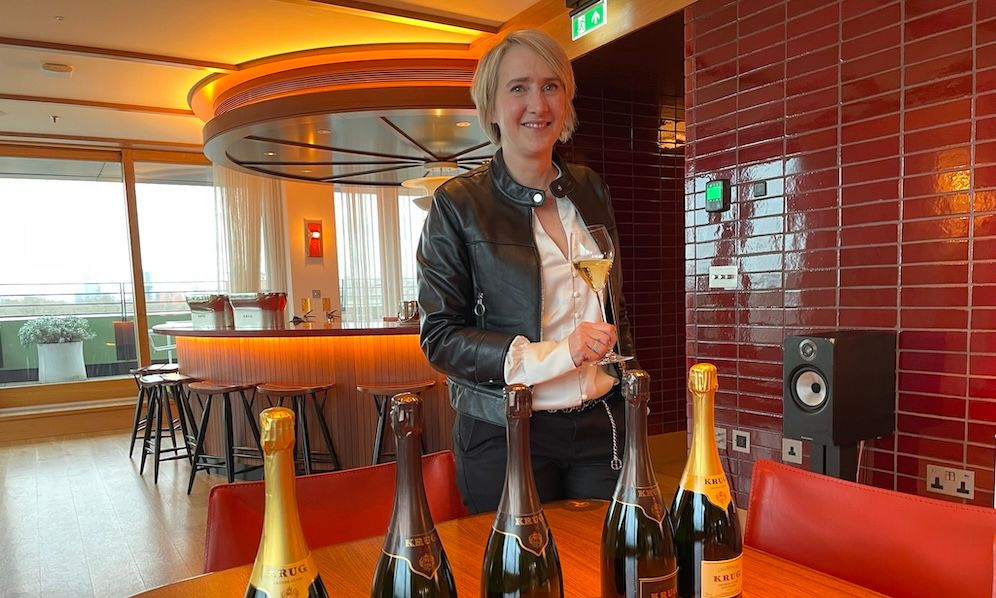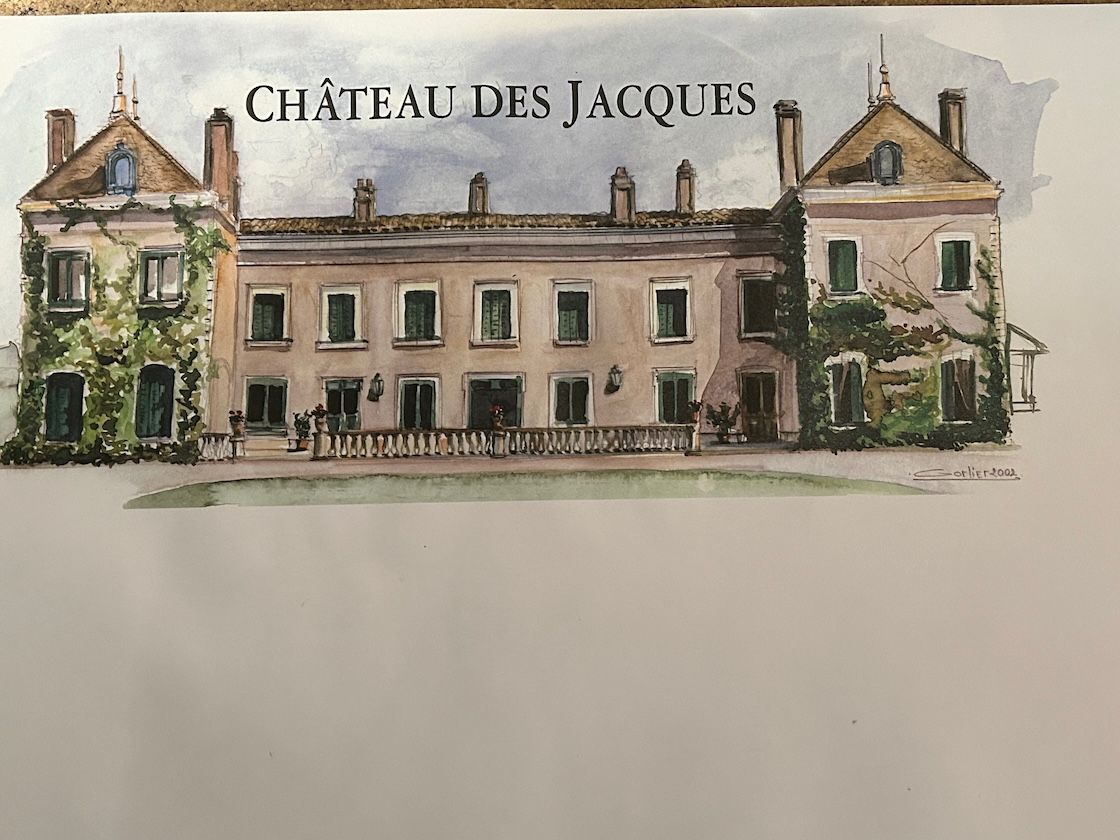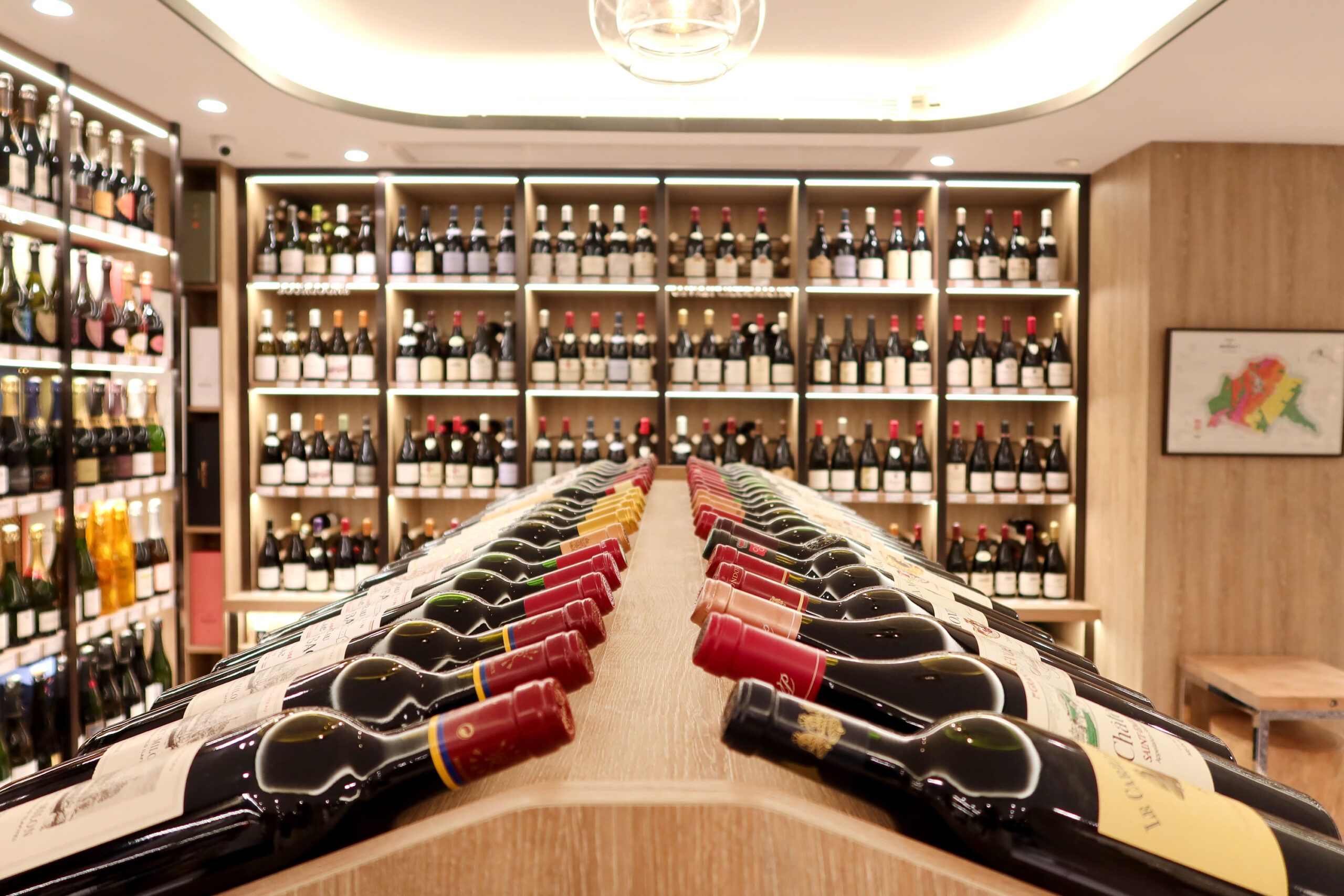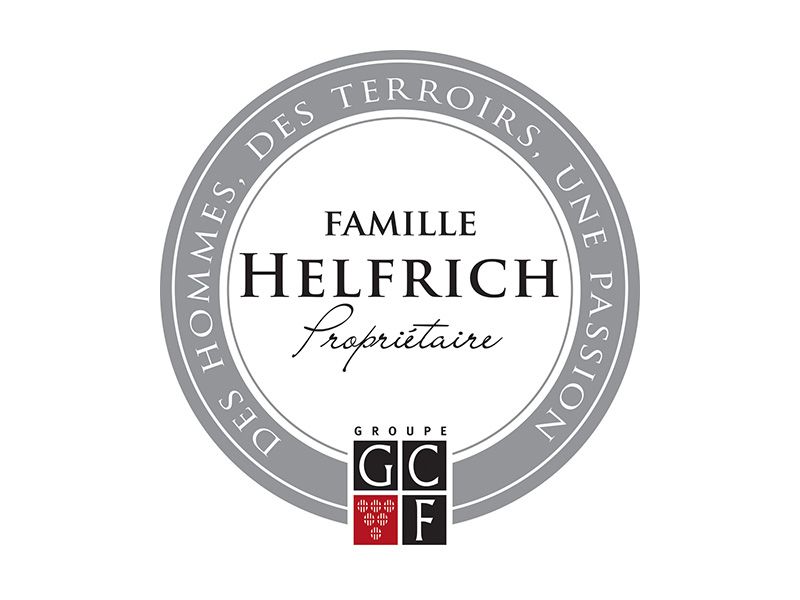“There is great ambition for the Institut Regional de Sommellerie Sud de France ‘to become a key player in the world of wine, both in France and abroad’,” writes Sharples.
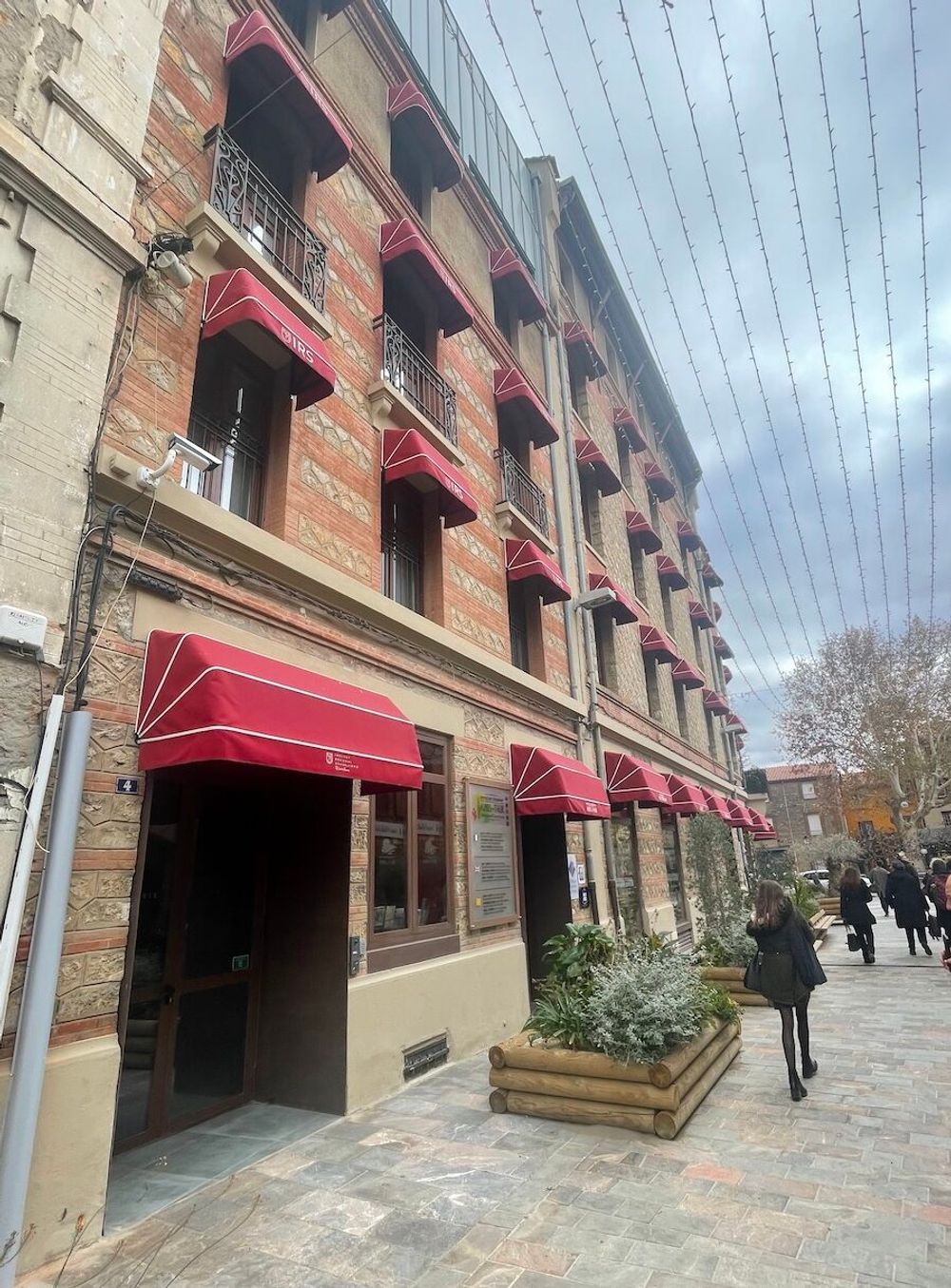
Institut Regional de Sommellerie Sud de France, Thuir, Pyrénées-Orientales
In a bid to raise the profile of the Roussillon wine region, local French, EU authorities and the Sud de France have banded together to raise €9 million to create the Institut Regional de Sommellerie Sud de France – an immersive wine school near the town of Perpignan.
Demonstrating unparalleled commitment and passion, two local politicians, 86-year-old local mayor René Olive and the now President of the Institut, Nicole Gonzalez, have championed the project, both are long-term supporters of local industry and agriculture. The Institut fulfils the commitment of Olive and Gonzalez to increase tourism to Roussillon, support the local economy and provide an instrument to showcase the local wine regions.
In addition, the politicians wanted to help local wineries ensure they have professional staff, increase the skillset of regional hospitality and bolster the profile of wines from the Roussillon region. The end result is an unique wine school that optimises the resources available to both local French and international sommeliers as well as the wine and hospitality industry as a whole.
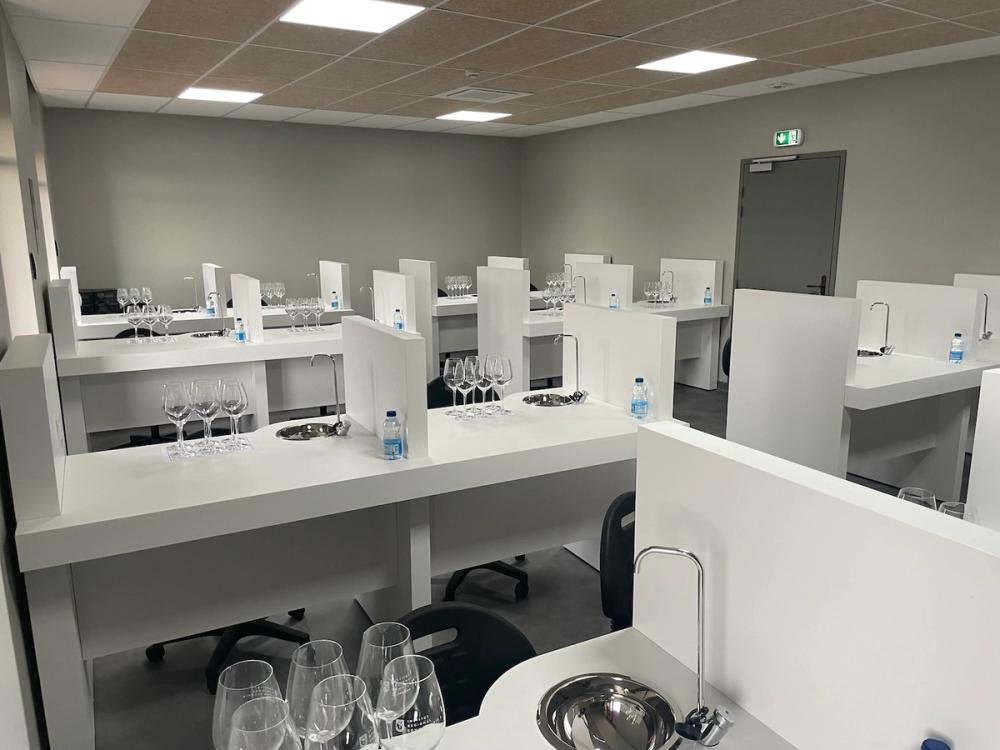
The facilities here are state-of-the-art
All in the planning
According to Olive, the genesis of the Institut dates back over a decade. A prominent corner building of the Caves de Byrrh (the ancestral home of the famous Languedoc Roussillon aperitif) was acquired and renovated. The region’s tourist office was installed on the ground floor, alongside the Byrrh museum, but the upper four floors lay fallow – providing just the right space for new Institut.
The project was authority-driven, and it needed to be because raising €9 million for the refurbishment and establishment of the Institut was a task nothing short of Herculean. A vast array of government entities was marshalled into action – from the local communes, the regional Sud de France to the French government and even the EU itself. As the president Nicole Gonzalez enthused, there is great ambition for the Institut “to become a key player in the world of wine, both in France and abroad”.
Where is the Institut Regional de Sommellerie Sud de France?
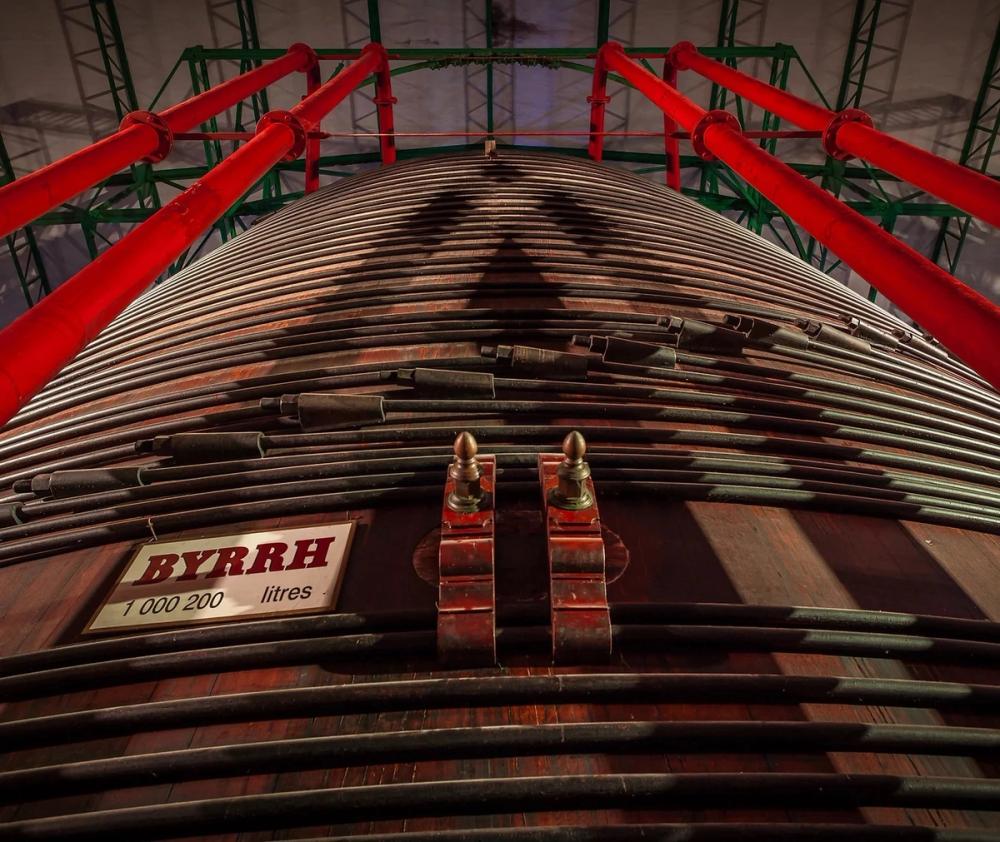
The world’s largest oak cask – holding one million and two hundred litres – is located in the adjoining Byrrh museum.
The Institut is located in the quiet village of Thuir (pronounced through pursed lips ‘tweeeur’), only about 16km from Perpignan. The village already has its own destination status as Byrrh enthusiasts have always been keen to see the world’s largest oak cask – holding one million and two hundred litres – which is located in the Byrrh museum.
While the village may be new to some, the local wine regions of the Occitanie are more likely to be familiar. This vast area holds the wine region of Roussillon, Languedoc, and the South West. While not as well-known as Bordeaux and Burgundy, these regions account for 42% of French wine production, with a diverse array of varietals (58 authorised for PGI or PDO status). The region’s compelling beauty, nestled between the Mediterranean Sea and the foothills of the Pyrenees, provides further reason for tourists and wine enthusiasts alike to come, visit and explore.
Range of courses with international appeal
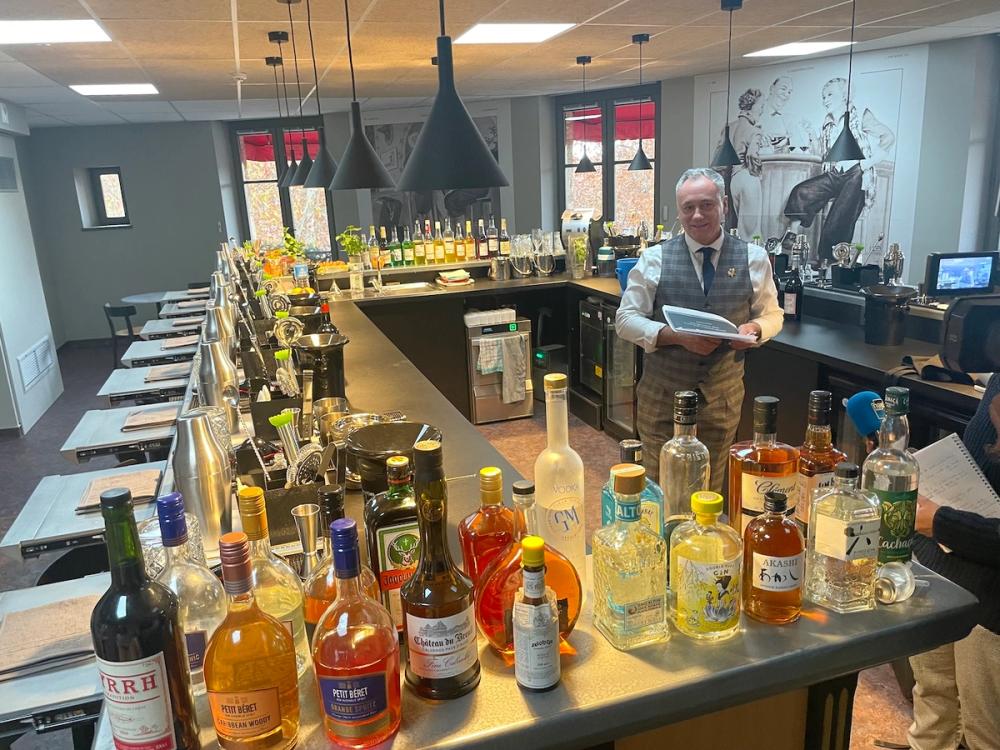
Mixology classes help to gain basic concepts and skills
The Institute itself is housed over four floors, with the top floor benefitting from mountain views and a large terrace. Other floors have airy lecture theatres, a mixology lab, kitchen lab and a tasting room. Classes are intimate, never more than 16 students. What is striking is the rounded, complete nature of the courses.
A mixology class is offered – something that many a sommelier could use, not to become mixologists themselves, but to gain basic concepts and skills to round out their knowledge. So too, the wine blending class offers an opportunity to understand what many winemakers must do every vintage. These types of classes provide both insight and practical experience.
The support of the regional government gives the Institut unapparelled access to wineries, vineyards and potentially winemakers, so it is real-world experience and views that are provided, rather than solely academic insight – all of the teaching staff work in the industry, for example.
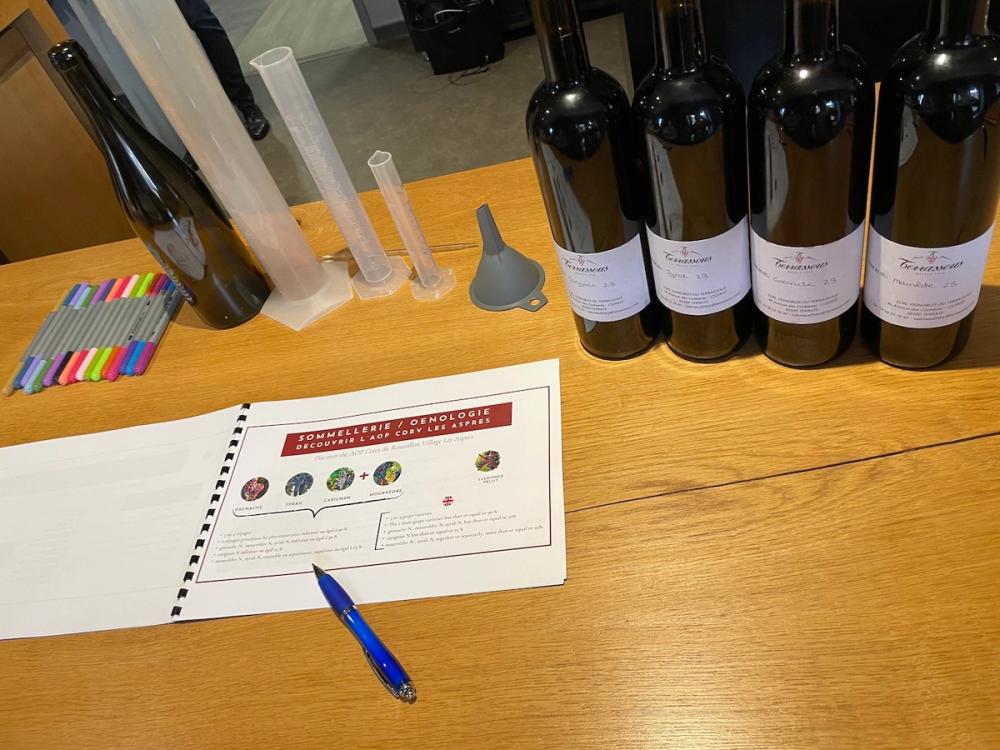
Initiatives are designed to foster and bolster attracting more international professionals.
The courses provided are wide and varied – ranging from short courses designed for sommeliers and wine trade professionals to hone specific skills (be it wine knowledge, tasting techniques, communication, or wine tourism) to the more in-depth 12-month diploma that is run exclusively by the Thuir Campus in partnership with the Ecole des Vins du Languedoc, the UPVD and the Chamber of Trades of the Pyrenees Orientale.
The diploma includes six months of course work and four to six months of work placement. An additional and unique course to be offered from 2025 is a preparatory course to build skills to compete in local competitions such as the Best Sommelier in France, Best Young Sommelier in France, and Best Wine Merchant in France. The courses are 15-20 days in duration. Clearly there is a concerted effort to increase knowledge and skills of the local wine trade.
Tuition ranges from a few hundred euros to up to €6,000, with some support available for more professional courses from the local authorities. While initially targeted to the French wine trade, recent partnerships with the UK Sommelier Association and the Association of Flemish Sommeliers will work together to bring their members to Thuir as well as reciprocity for French students to travel and study abroad. This is only the beginning, initiatives, albeit in their infancy, are designed to foster and bolster attracting more international professionals.
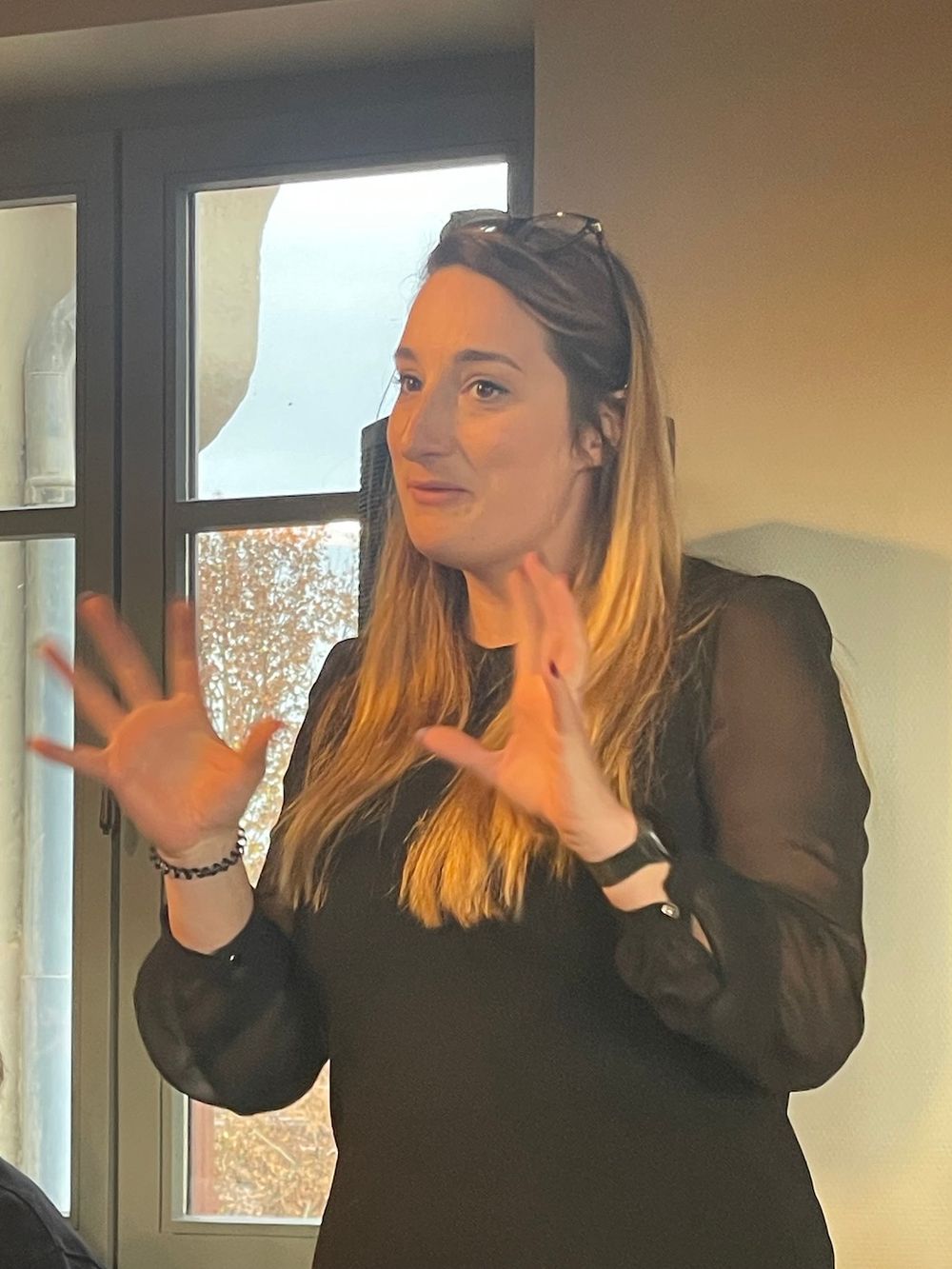
Laetitia Mathieu: the Institut is designed to have broad appeal
The director of the Institut, Laetitia Mathieu, acknowledges the students will be their greatest ambassadors to promote both the school and the region, however they have also engaged several ‘parrains’ or ‘godparents’, a literal French translation, but probably more realistically described as ambassadors of the Institut. There are currently three godparents – southern French and rosé wine expert Elizabeth Gabay MW, local actor and winemaker François-Xavier Demaison and former World’s Best Sommelier, Philippe Faure-Brac.
Speaking with Gabay, she noted, while her interest in Roussillon and the south dovetails with her affinity to the Institut, she hopes her involvement at an international level will bear even more tangible fruit. To her, the school provides and reinforces the importance of education not just for sommeliers but also for consumers, and educators alike. In addition, the diversity of the course offerings gives the Institut a position to discuss the evolution of the wine market including key issues, “…such as climate change, declines in wine consumption and the phenomenon of premiumisation…”
Immersion, expertise, and passion continue to underpin the Institut and their determination to be relevant with a professional teaching staff. This ethos gives the Institut agility and allows it to pivot, rather than be locked into restrictive or old-fashioned notions. Furthermore, their willingness to tailor courses to clients’ needs provides an unique selling point.
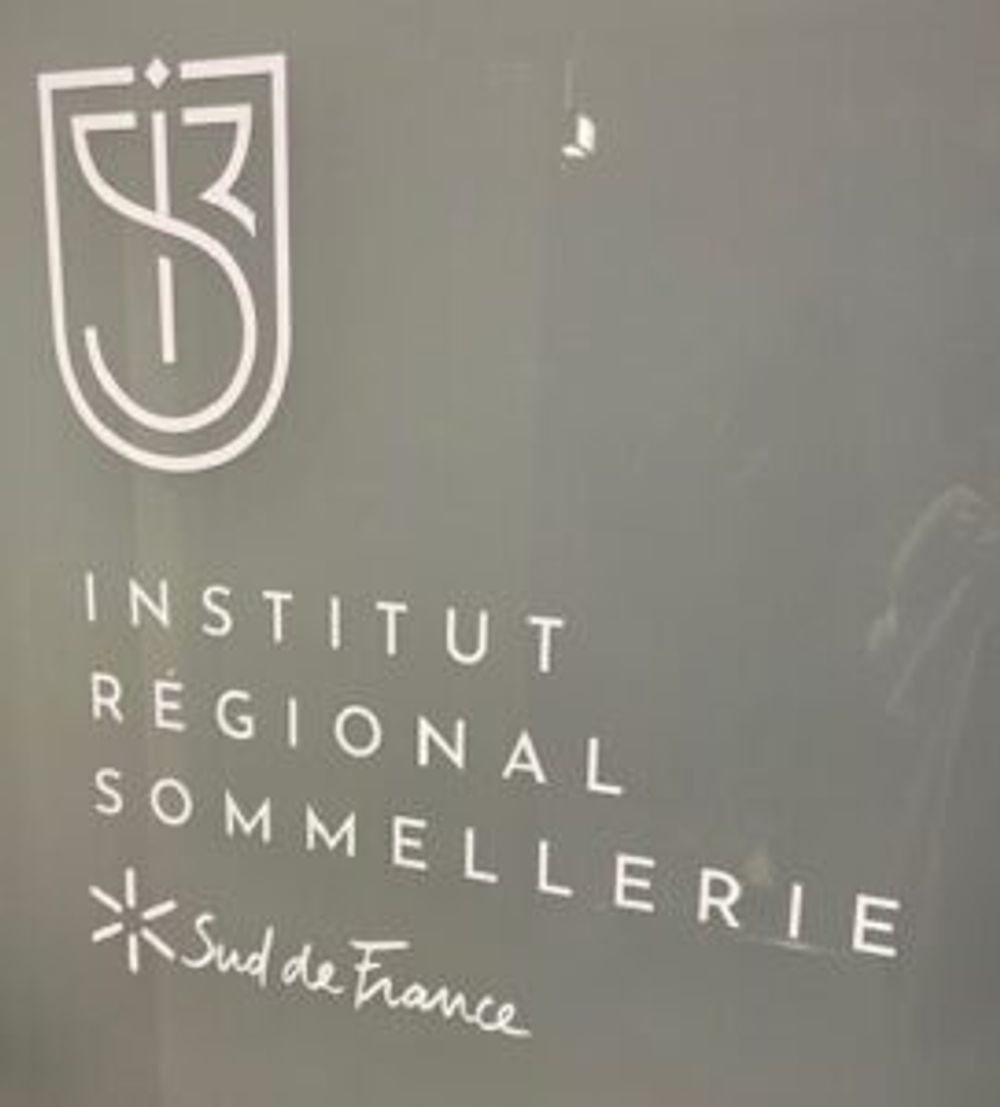
For further information about the courses available visit the Institut Regional de Sommellerie Sud de France here
